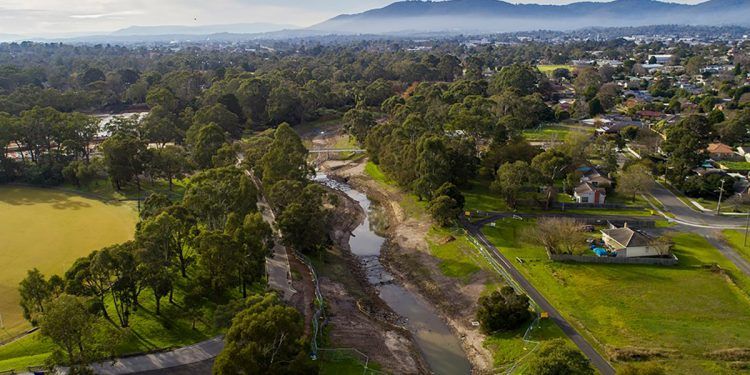Melbourne Water Takes Sewerage Management to the Community
Published on by Water Network Research, Official research team of The Water Network in Social
Engaging with the community in a meaningful way can encourage water businesses to do things differently, as Melbourne Water discovered with its Enhancing Our Dandenong Creek (EODC) project.
By Ruth Cooper. Water Source AWA

A stretch of Dandenong Creek. (Image source: watersource.awa.asn.au)
From 2013 to 2018, the utility worked with the Victorian Environment Protection Authority to implement alternative approaches to protecting public health and improving water quality in Dandenong Creek.
The program had four aims:
- improve amenity and liveability;
- reduce stormwater pollution;
- create habitats for native fish;
- manage the impact of non-compliant wet weather sewage overflows into the creek.
As part of this, Melbourne Water Senior Planning Engineer Sarah Watkins said the utility looked at ways it could manage the risk of sewer overflows, rather than simply building a bigger sewer.
This was supported by an investigation from 2011 that showed sewer spills weren’t the only thing affecting the creek; pollution from nearby industrial areas and residential stormwater runoff were also impacting the health of the waterway.
“We questioned doing a conventional upgrade,” Watkins said ahead of her presentation at Ozwater’19 in May.
“Is it sensible to spend millions on a new sewer pipe if it’s not going to achieve any measurable outcome for the waterway?”
As phase one of EODC came to an end last year, Watkins said the utility wanted to consult the community about its proposal to defer sewer upgrades until 2030 and focus on other improvements.
“The sewer is spilling into their waterway, so we didn’t feel it was appropriate for us to make a decision about what happens next without community support,” she said.
“Before we moved into the next phase we wanted to get endorsement from the community.”
Capacity building
To do this, the utility held a two-day deliberative panel consisting of 24 community members from within the catchment.
Watkins said the panel format was chosen as it allowed experts from Melbourne Water to build the participants’ understanding of sewerage and waterway management, and the challenges and issues specific to Dandenong Creek.
“The technical aspect of the project leant itself to a panel because it required an in-depth exploration of the issues,” Watkins said.
“It also aligned with our engagement approach and was something innovative we wanted to try.”
Positive participation
Watkins said utilities might be hesitant to embrace community engagement when it comes to complex issues like a sewer spill, but that it was a positive experience for Melbourne Water.
The panelists were surveyed at different points throughout the process, which showed support for the sewer deferral increased as the panelists were given more information.
“Sewage discharge to a waterway is a contentious issue, but if you take the time to engage with customers in an appropriate format, and in enough detail and depth, you get a lot of good information,” Watkins said.
“We learnt a lot about what they value and what outcomes they would like to see.”
Consulting the community also gave the utility a mandate to continue its EODC project rather than revert to a more traditional approach.
“Ultimately these are community systems we’re impacting, and it’s the community we’re trying to provide a benefit to,” Watkins said.
“The most appropriate way to do that is to talk to them.”
The Enhancing our Dandenong Creek program is a finalist in the 2018 Program Innovation Award, which will be announced at the Ozwater’19 gala dinner.
Media
Taxonomy
- Combined Sewer
- Pipes Design
- Stormwater Management
- Stormwater
- Sewage
- Storage Tank
- Water Storage
- Storm Water Management
- Utility Pipe Network
- Sewer Networks
- Vacuum Sewers Construction
- Pipes and Pipelines